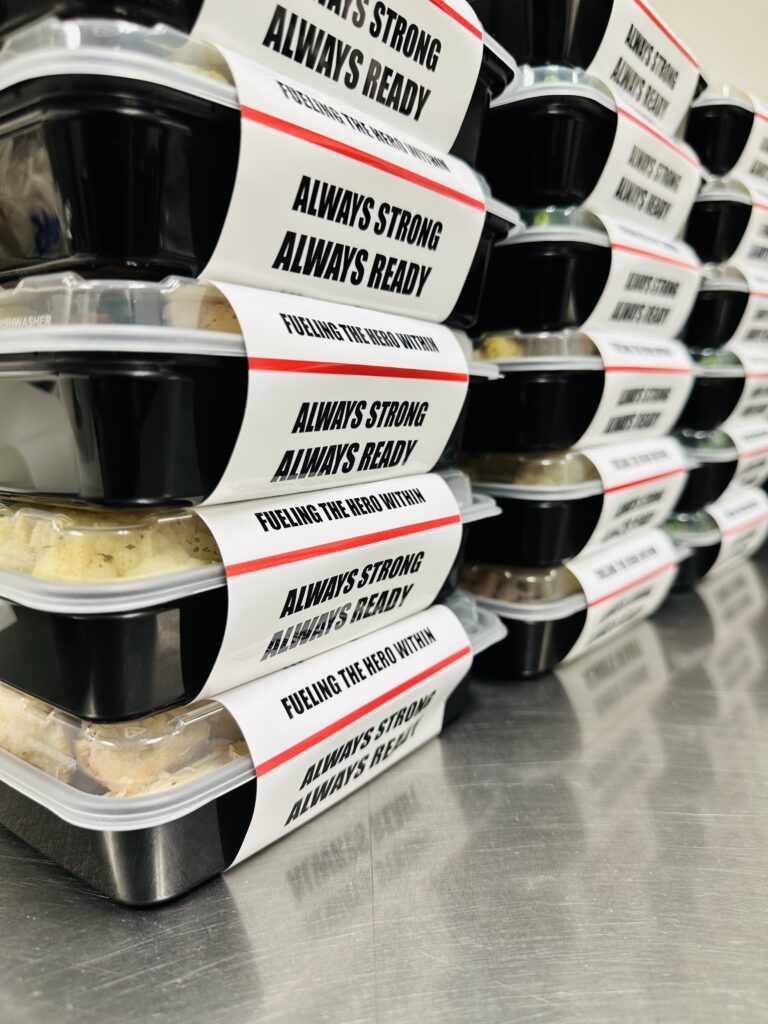From Cafeteria to Classroom: The Impact of University Meal Plans on Student Health Versus Clean, Unprocessed, and Healthy Meals from Fire Dept Meals
Navigating the nutritional landscape of university life can be a daunting task for many students. The transition from home-cooked meals to cafeteria dining often marks a significant change in dietary habits, which can have profound implications for student health and academic performance. In this context, the comparison between traditional university meal plans and innovative meal delivery services like Fire Dept Meals offers a revealing look into the potential for diet to influence student life.
The Traditional University Meal Plan: Convenience at a Cost
University meal plans are designed to provide students with convenient and accessible dining options on campus. These plans typically offer a range of cafeteria-style meals, fast food, and snack options designed to cater to a diverse student body. However, this convenience often comes at a cost to nutritional quality.
A common criticism of university meal plans is their heavy reliance on processed foods, high in sugars, unhealthy fats, and sodium. While these foods can be satisfying in the moment, their long-term impact on student health can be concerning. Studies have linked diets high in processed foods to a range of negative health outcomes, including increased risk of obesity, heart disease, and diabetes.
Moreover, the stress and time constraints associated with university life can lead students to prioritize convenience over nutrition, making it even more challenging to maintain a healthy diet. This dynamic can create a cycle of poor dietary habits that not only affects physical health but also cognitive function and academic performance.
The Rise of Clean, Unprocessed Meal Delivery: Fire Dept Meals
In contrast to the traditional university meal plan, services like Fire Dept Meals offer a promising alternative that prioritizes clean, unprocessed, and healthy meals. Founded by firefighters who understand the importance of nutrition for maintaining peak physical and mental performance, Fire Dept Meals focuses on delivering high-quality, nutrient-dense meals directly to consumers.

What sets Fire Dept Meals apart is their commitment to using fresh, locally sourced ingredients without additives, preservatives, or processed elements. Their menu is designed to cater to a variety of dietary needs and preferences, including gluten-free, keto, and vegan options. This approach not only supports physical health but also cognitive function, which is essential for academic success.
The benefits of consuming clean, unprocessed meals extend beyond the individual. By supporting services like Fire Dept Meals, students contribute to a larger movement towards sustainable and ethical food practices. This not only has positive implications for personal health but also for the environment and local communities.
Impact on Student Health and Academic Performance
The difference in nutritional quality between traditional university meal plans and services like Fire Dept Meals can have significant implications for student health and academic performance. Diets rich in whole, unprocessed foods have been shown to improve concentration, memory, and overall cognitive function. This, in turn, can lead to better academic outcomes, as students are better equipped to handle the demands of their coursework.
Furthermore, maintaining a healthy diet can help mitigate the effects of stress, improve mood, and enhance sleep quality—all of which are critical for academic success. In contrast, the typical university diet, high in processed foods and low in essential nutrients, can exacerbate stress, disrupt sleep, and negatively impact mental health.
Conclusion
The transition from the cafeteria to the classroom underscores the critical role of diet in student life. While traditional university meal plans offer convenience, they often fall short in providing the nutritional foundation necessary for optimal health and academic performance. In contrast, services like Fire Dept Meals represent a viable alternative, offering clean, unprocessed, and healthy meals that support both physical and cognitive well-being.
As universities continue to evolve, there is a growing opportunity to reevaluate and improve upon existing meal plans to better support student health. By prioritizing nutrition and embracing innovative meal delivery services, students can not only enhance their academic performance but also establish healthy dietary habits that will benefit them long after graduation.




